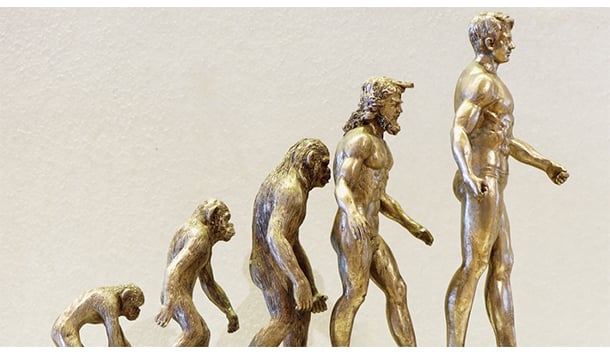Toxic is the combination of equality and evolution, of Rousseau and Darwin. Blended together and served upon the paps of public schools, television, and social media, they are the essential ingredients of the gall-milk of the postmodern world. They ensure that every infant will grow into a fully mature Ignoble Savage.
Rousseau gave the West an alternative morality based on his mythical vision of man as an animal whose redeeming quality is his pity for other animals. Darwin gave us a theoretical mechanism by which Western man might shrug off any competing explanation of himself—any wisdom that would suggest he is something other than an animal whose goal is to attain “fitness.”
In postmodern technocratic Western societies, evolution serves equality. Challenge an egalitarian on questions of sex, “gender,” or the nature and extent of “universal human rights” (such as the right to live in a “democracy”), and he will immediately trot out the old Darwinian warhorse to trample down your faith-based argument. Marriage is between one man and one woman only? Enough with your God delusion!
But, you say, my argument for traditional marriage is based not on revelation alone, but on science—on biology, which demonstrates the truth of the Bible that “male and female created He them.” Au contraire, replies Richard Dawkins, who identifies as an evolutionist and a feminist. Biology is evolution, and evolution explains everything. Gays exist, so evolution must be driving them toward gayness. Dawkins mentions the “sneaky f–ker theory,” which posits that gay gorilla man was trusted by the village warriors to stay at home and mind the females during the raid or the hunt, whereupon he could copulate with his neighbors’ wives and pass on his genes, which would then include the predilection toward gayness. But Dawkins prefers the “gay insofar as” theory, whereby the elusive gay gene expresses itself in homosexual relations only in today’s urban environs, whereas out on the prehistoric steppe it might have made one, say, a better wrestler or spear-chucker. Evolution explains all—all that we want explained—eventually.
What is man, that Richard Dawkins is mindful of him? He is a mere body, that is, “a throw-away survival machine existing only to preserve and propagate the genes”—genes which have no consciousness but are nonetheless “selfish.”
On the surface, Darwin and Rousseau are incompatible, and any combination of the two should translate into schizophrenia. It makes no sense to say that man is a member of the animal kingdom, in which random mutations result in some nonrandom advantages and some nonrandom disadvantages, the former translating into “fitness” and the latter into death and extinction; and then to turn around and add that all humans are created equal and have equal rights. No sense at all. If man is an animal, he should act like one, as Ted Bundy might have said. Guilt is for losers, as Nietzsche might have added. To hell with Rousseau’s noble (though he didn’t know it) savage, restrained by his unconscious, golden-retriever-like pity and untainted by jealousy. Contrariwise, egalitarians—whether of “opportunity” or of “outcome”—assume that unearned advantages are evil and must be rooted out in the name of social justice. Hence our schizophrenia.
Evolution is the supremely elastic justification of whatever is and whoever we are. It is “the science” that proves man is his own god—our own little ontological argument. Any behavior may be attributable to survival, because here I am, behaving this way, which is attributable to my parents’ evolutionary success. If I pass on my genes, I win; or to be precise, they (the genes) win. Love and loyalty, existing only in my individual genes, or in my group’s genes if I follow sociobiologist E.O. Wilson—who insists that homosexuality gives “advantages to the group by specialized talents and unusual qualities of personality”—are useful illusions insofar as they serve the singular purpose of gene preservation.
The Darwinist, writes Richard Weaver, “assumes that evolution is a fact and then uses it as both cause and effect in describing the phenomena of nature.” This is pure question-begging, no matter how much data detailing what is is amassed and labeled “evidence.” Christians desperate to make peace with such “evidence,” which was gathered to bolster a vision of man that is fundamentally opposed to virtue and good order, ought to consider that C.S. Lewis called this the “idolatry of artefacts.”
We speak a lot about culture and its restoration. Culture means the institutional and traditional cultivation of a people’s norms, which themselves are rooted in that people’s ideal of man. Man made in the image of God and conforming to the image of Christ served as the basis for Western Christian Civilization for centuries. But the false image of uncreated man, up from apery, cannot drive us to look upward to the God Who is there, nor back to the wisdom of the past, but only “forward,” to whatever our darkened imaginations may imagine.

Leave a Reply